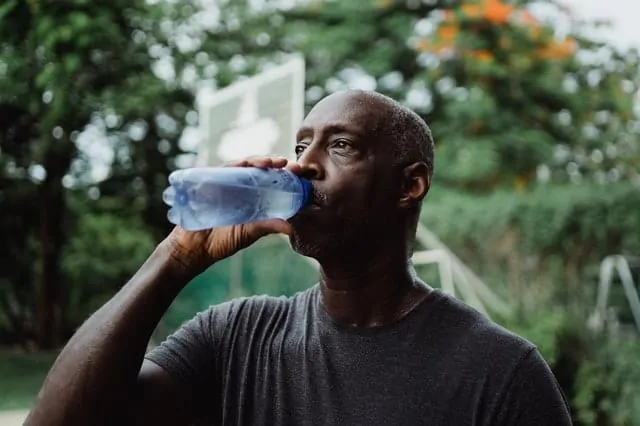If you’ve ever experienced dry mouth, you know just how uncomfortable and frustrating it can be. Even drinking glass after glass of water doesn’t seem to help relieve it. Dry mouth is an incredibly common ailment that all of us experience once in a while, but if you have a chronically dry mouth that doesn’t go away, it may be time to see your dentist in McMinnville.
Risks Associated with Dry Mouth
The truth is, living with a dry mouth day in and day out isn’t only uncomfortable, it can be bad for your overall oral health, too. You see, when the mouth feels dry it means that your saliva glands aren’t producing enough spit to keep your mouth lubricated and moist. A healthy mouth is constantly producing saliva which helps neutralize plaque acids, rinse away bad bacteria that could cause decay, and remove leftover food particles. However, when someone is experiencing dry mouth, there’s not enough saliva to perform those jobs properly. In turn, this increases the likelihood of having bad breath, developing cavities, and other serious oral health problems that require treatment from your McMinnville dentist.
What Causes Dry Mouth?
There are several possible explanations for an individual’s dry mouth. For example, if you’re only experiencing dry mouth for a short period of time, it may simply indicate dehydration. Drinking more water throughout the day can make a big difference. On the other hand, there are times when dry mouth seems as if it’s never going to go away. If this happens, you may need to talk with your dentist in McMinnville about what may be causing it. Some common causes of chronic dry mouth include:
- Medications. If you read the label or insert that accompanies your medications, you shouldn’t be surprised to see dry mouth listed as a common side effect. Tons of medications can contribute to dry mouth. Anything from anxiety and blood pressure medicines to cancer treatment can cause dry mouth, so it’s important to read those warning labels and inserts. If your medication may be to blame for your dry mouth, don’t stop it without talking to your doctor first. You should also ask your dentist about some ways you can combat dry mouth that’s caused by medication.
- Diseases & Other Health Problems. If you have other health problems or certain diseases, you may be at increased risk for dry mouth, too. Some diseases that are known to cause dry mouth include, but are not limited to, Sjögren’s syndrome, HIV/AIDS, and diabetes.
- Tobacco & Alcohol. Smoking, using smokeless tobacco, and drinking alcohol all naturally have a drying effect on the mouth. Since these are often regular habits that people engage in often, the mouth is constantly being dried out. The best way to stop dry mouth caused by tobacco or alcohol is to quit or, at a minimum, cut back.
- Mouth Breathing. We’ve all had to breathe out of our mouths during a wicked cold or during allergy season when the nose is too stuffed up to allow air through. But some people naturally breathe out of their mouths instead of their noses, especially during sleep. However, when the mouth is opened for prolonged periods of time and the inside is constantly exposed to air dries, the result is an uncomfortably dry mouth.
Signs & Symptoms
Most sufferers of dry mouth know they have dry mouth simply by the feeling alone. However, some other common symptoms of dry mouth include:
- Cracked, dry lips
- Difficulty swallowing, chewing, or speaking
- Dry throat or tongue
- Bad breath
The good news is dry mouth can often be treated successfully with intervention from your dentist in McMinnville. There are also things you can do at home to lower your risk of dry mouth such as:
- Drinking plenty of water throughout the day
- Limiting your intake of caffeinated or alcoholic beverages
- Chewing sugarless gum to stimulate salivary glands
You don’t have to live with a dry mouth. If you’re ready to talk about how we can help, give us a call today to schedule an appointment.
Dr. Amy Wark completed her one-year general dentistry residency while serving in the Air Force in Dayton, Ohio. Her residency allowed her to learn specialized surgical procedures involving extractions and gingival health. Dr. Wark spent the rest of her military career stationed in England and returned home to join and take over her father's practice.
Read The Full Bio
